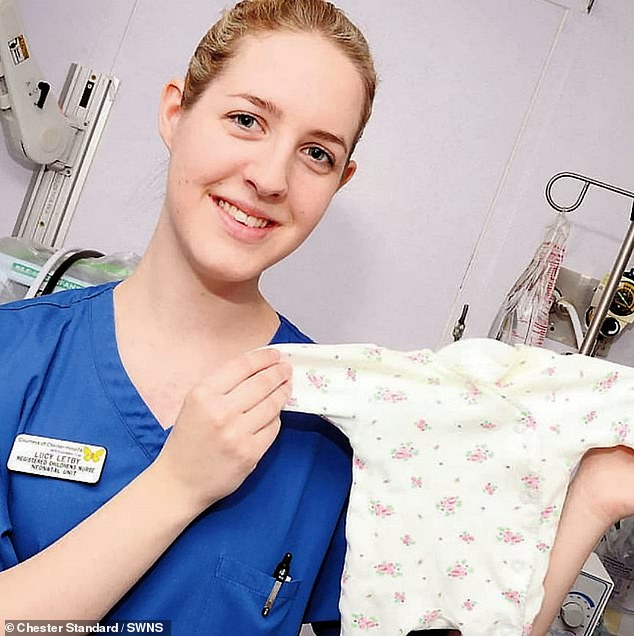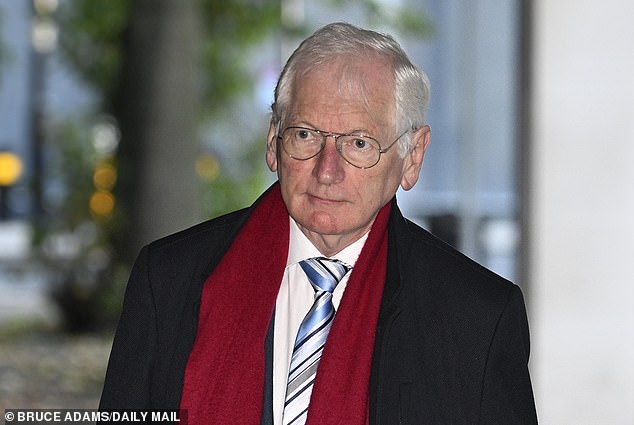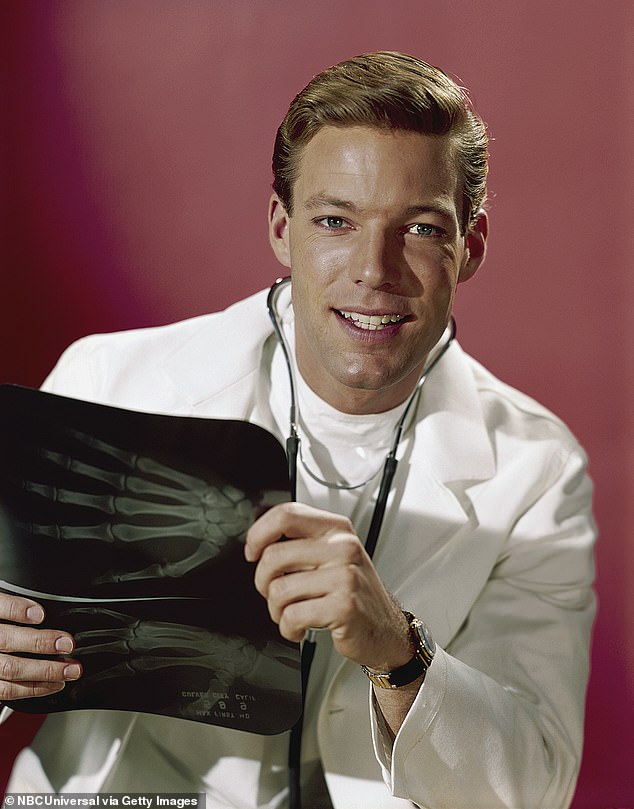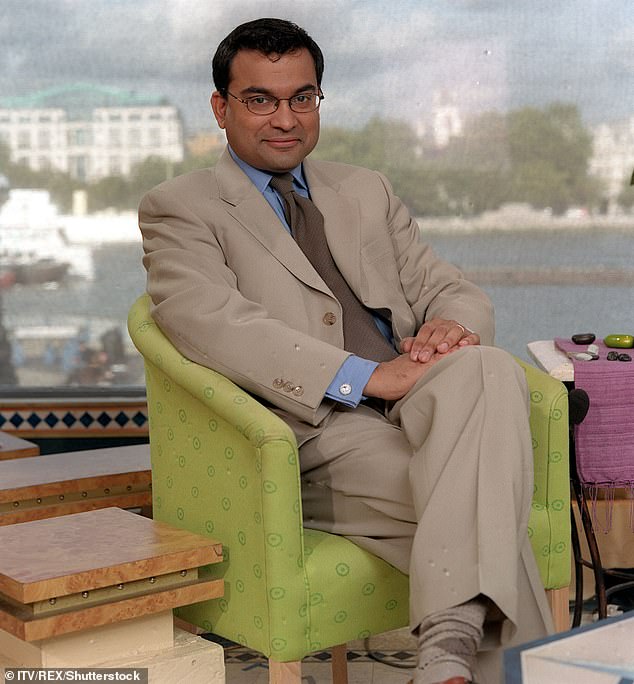Back in November, I wrote a column in this newspaper questioning the attitude and behaviour of Dr Dewi Evans, the chief expert witness in the trial of Lucy Letby.
Letby, now 35, is serving a series of whole-life sentences in prison – where she will die – following convictions for murdering seven babies and attempting to kill seven more.
Others more qualified than I have questioned the accuracy of the medical, statistical and scientific evidence presented by Evans during the 2023 trial.
Yet, until recently, few seemed to challenge the motives and experience of this star witness, a silence I found distinctly odd. It’s as if he were somehow above scrutiny.
I trained as a nurse in the 1970s, around the time that Evans, now 75, was completing his medical training. For two years or so, we both worked in the same city, Liverpool, albeit at different hospitals.
And, while I didn’t come across Evans himself, I did meet plenty like him.
I’m not quite as old as Evans, but I, too, am from a generation brought up on episodes of Dr Kildare.
This was the famous television series about a good-looking medic who, played by the late Richard Chamberlain, saved lives and was feted by nurses and patients alike.

Lucy Letby, now 35, is serving a series of whole-life sentences in prison – where she will die – following convictions for murdering seven babies and attempting to kill seven more
The show not only attracted big audiences, it helped maintain the myth that doctor always knows best. I saw this in my own working life. On the wards where I trained and later nursed, a consultant was always deferred to as though he – it was always a he – were a film star, just like Dr Kildare. Or perhaps like God himself.
Hospital wards then were of the Florence Nightingale design: a row of 15 beds down each side allowing nurses to see every patient at a glance.
Long tables ran down the middle where we made our notes.
Patients could call out; we would instantly hear and respond.
No running was allowed, unless in the case of a cardiac arrest or a haemorrhage. Ruling the wards were matrons, the only people to whom a doctor might occasionally defer. Deference and fear were the abiding culture of the hierarchy.
I remember doctors banging open both ward doors at the same time, strutting down the middle, white coats flapping, stethoscopes dangling from pockets, heads held high to prevent their imaginary halos from slipping.
Gaggles of terrified medical students followed in their wake.
Nurses quaked in fear of something being not quite right – and copping it from the ward sister should the doctor complain.
A consultant once complained about me because I’d had the temerity to walk across his path. I had failed to stand at the end of a bed, stock still, like the other nurses as he paraded down the ward. The medic appeared to have an issue with young women.

Dr Dewi Evans, the chief expert witness in the trial of Lucy Letby. Few seemed to challenge the motives and experience of this star witness, a silence I found distinctly odd. It’s as if he were somehow above scrutiny
I wonder if the same applies to Dr Evans. The Mail on Sunday revealed at the weekend how, earlier this month, Evans responded to one online critic with a series of inappropriate, sexually loaded remarks – about nurses.
The exchange came on the triedbystats.com website, where a statistician had dared to question anomalies in Evans’s evidence at Letby’s trial. The reaction was extraordinary.
‘You’re turned on by Lucy Letby in her uniform,’ Evans told his critic. ‘You seem very intense and it’s not unusual for men to have the hots for pretty young blonde females.
‘A nursing uniform is a turn-on for some by all accounts.’
He went on to say: ‘I would suggest you need to get out more, find yourself an available pretty young blonde female with/without nursing credentials.’
These bizarrely ill-judged remarks rang a bell for me: this was not the first time I’d heard Evans make jarring comments about relations between nurses and doctors.
I recall him being interviewed on a 2023 podcast with Harley Street psychiatrist, Dr Raj Persaud, when Evans ventured that Letby had ‘an infatuation with one of the medical staff’.
‘But, hey, you know, that’s not that unusual,’ he continued. ‘That’s something that we doctors have to put up with, nurses quite taking appeal. Medicine appears to be a profession that is very appealing to the ladies.’
I’m not sure I’ve heard such a misogynistic and outdated comment in 40 years.
‘We doctors?’ When was the last time a young nurse ‘took an appeal’ to 75-year-old Dewi Evans? I was struck by his reference in the podcast to how clever he was, explaining that: ‘I managed to get all the postgraduate exams very quickly somehow again, luckily. I turned out to be a bright little boy.’
The more I see and hear of Evans, the more I am reminded of the consultants I worked among in the 1970s.

Dr Kildare was the famous television series about a good-looking medic who, played by the late Richard Chamberlain (pictured), saved lives and was feted by nurses and patients alike
It seems the statistician he attacked in such personally insulting terms had made the cardinal mistake of questioning the doctor.
Evans has steadfastly defended the leading part he played in securing Letby’s conviction, of course.
This is despite mounting doubts about its safety. Some of the world’s most eminent neonatologists (specialists in severely premature babies), statisticians, nurses, psychiatrists and scientists now believe the conviction to be unsafe.
It is worth remembering that Letby’s colleagues recall her as a popular and dedicated nurse who didn’t seem to fit the profile of a serial killer in any way.
In August, no fewer than 24 experts from the United Kingdom wrote a private letter to the Health Secretary, Wes Streeting, expressing doubts about Letby’s conviction – an act so unusual I’m not sure there is a precedent.
Lord Sumption, a highly regarded former judge in the Supreme Court, has added his voice, stating that ‘Letby is probably innocent’.
Adam King, the barrister who prosecuted the Just Stop Oil protesters, told the MoS: ‘This is a rare instance of a case that needs to be considered by the Court of Appeal for a second time and soon.
‘The ever-growing doubt about the Crown’s star expert’s [Dr Evans] reliability warrants that course. We’re almost certainly looking at an unsafe conviction.’
An international review of the evidence found that all the cases of death or injury were the result of natural causes or bad medical care. A growing number of observers fear Evans approached the case assuming as fact – from the very beginning – that tiny babies had been unlawfully killed.
That same podcast with Dr Raj Persaud offers an intriguing insight. Discussing a key piece of evidence about internal injuries found in one baby, Evans stated that: ‘One of the medics had written down that he’d noticed what he thought was bruising over the area of the liver. Well, that doesn’t happen.
‘I got the post-mortem results as well. And saw some pretty florid, horrid photographs that showed several bloody areas and bleeding over the liver. In other words, trauma to the liver.
‘And I thought, oh my God, this is dreadful. This is inflicted injury. So right from the beginning I said, look, this is inflicted injury.’
Notice those words ‘right from the beginning’.
Had Evans taken the view that there was a murderer at large before he’d even started to investigate?
It later transpired – but only after Letby had been convicted – that the injury had an innocent explanation.
It had been caused by a doctor who inserted a cannula into the liver, by accident, instead of the baby’s heart, where it was supposed to go.
Was Evans even qualified to act as an expert witness in a case as specialised as this?
It seems to me that, at the very least, the expert witness should have been a practising specialist in neonatology – working with dangerously premature babies often suffering a range of life-threatening complications. Evans was not that man.
When questioned by the MoS, Evans admitted he had not been responsible for the care of a neonate since 2007.
Yet he was allowed to be the chief witness in a trial in which the care of neonates was central.
How did this come about? Evans admits he had written to Cheshire Police, touting for work, when he heard about the cluster of deaths at the Countess of Chester Hospital, where Letby worked.

Dr Evans was interviewed on a 2023 podcast with Harley Street psychiatrist, Dr Raj Persaud (pictured), when Evans ventured that Letby had ‘an infatuation with one of the medical staff’
‘This sounds like my kind of case,’ he said in an email offering his services. Yet it wasn’t anyone’s ‘kind of case’. Never in British history had there been a cluster of neonatal deaths presumed by the police to be murder.
And that presumption was itself an ignorant one, given how many different causes there could have been for the deaths – which might turn out to be the case if, as I profoundly hope, the evidence is re-examined.
Clusters of deaths in maternity units are, sadly, not unusual. Meanwhile, self-appointed experts themselves are coming under increasing scrutiny, and rightly so.
In recent days, senior figures such as former Attorney General Dominic Grieve KC and former Home Secretary Jack Straw have joined lawyers and doctors in questioning the use of expert witnesses in English courts. They cite the catastrophic miscarriages of justice endured by sub-postmasters in the Post Office/Horizon scandal, but also the Letby case.
They are rightly troubled that criminal and civil trials alike can hang on the evidence of people who, it sometimes later transpires, lack relevant knowledge.
Thank goodness the Criminal Cases Review Commission is now considering Lucy Letby’s conviction as a potential miscarriage of justice. It will examine a mass of new material, including evidence that Evans changed his mind about the mechanism of death for three of the babies.
Some believe her conviction could be the greatest miscarriage in British legal history. I certainly hope the commission will feel it has no alternative but to refer the case back to the Court of Appeal.
Meanwhile, I also hope that improvements will be made to the way expert witnesses such as Dr Dewi Evans are appointed and deployed, particularly in complex medical cases.
It’s a change that cannot come too soon.












